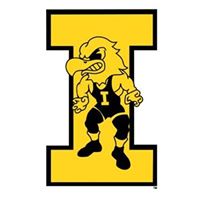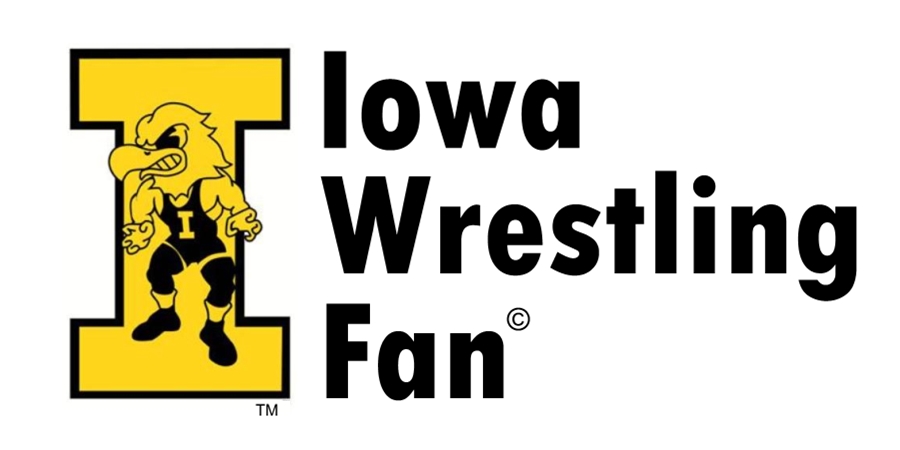 The NCAA announced a list of proposals for rule changes in college wrestling. This is very much needed. I have never seen a year of college wrestling where rules were such a hot topic. The first thought that comes to mind in the hands to the face call. Specifically Spencer Lee getting called for hands to the face in the Big Ten finals. Hands to the face has to be priority #1 for me as a fan.
The NCAA announced a list of proposals for rule changes in college wrestling. This is very much needed. I have never seen a year of college wrestling where rules were such a hot topic. The first thought that comes to mind in the hands to the face call. Specifically Spencer Lee getting called for hands to the face in the Big Ten finals. Hands to the face has to be priority #1 for me as a fan.
The proposals will now be discussed by the NCAA Playing Rights Oversight Panel on June 13. They will decide if these proposals are to become a new rule for the upcoming 2019-2020 college wrestling season.
I am not against the officials of college wrestling. I believe that a majority of the time the officials were put in a terrible situation where they had to enforce rules that were very, very flawed. The emphasis should be put on changing the rules and how consistently they are enforced. Then you can property evaluated the efficiency of a college wrestling official more effectively.
I interviewed Tim Shiels who is the Director of NCAA Wrestling Officiating for my Iowa Wrestling Fan Podcast last November (Episode #30 on SoundCloud). Tim brought us up to date with the new rules for the season. I hope to have Tim back on my Podcast this fall again to go over what is hopefully new rules for several of the following topics.
I cannot help but believe that coaches are using the review process for their wrestler to rest and catch their breath. I do not have an answer on how to prevent that, but I see it as a problem. I definitely do not like the proposal of counting a medical forfeit as a loss. I am hoping that does not pass and become a rule.
I will keep you up to date with any information that the NCAA releases on if the following proposals were made into new rules for the 2019-2020 college wrestling season.
College wrestling is always evolving and that is in large part because of new rules being implemented. There are several Division I college wrestling coaches on a panel that vote on the new rules. I would sure like to see Tom Brands of the University of Iowa on that panel. Just a thought.
Again, these are just proposals at this time. The meeting on June 13 will be the deciding factor on whether they pursue making the following proposals into actual rules.
From NCAA.org:
The NCAA Wrestling Rules Committee recommended allowing wrestlers to compete in shorts designed for the sport and removing all language in the rules book regarding the length of a wrestler’s hair.
If approved, the changes would take effect in the 2019-20 academic year.
The NCAA Playing Rules Oversight Panel is scheduled to discuss all wrestling rules proposals via teleconference June 13.
Committee members, who met in Indianapolis earlier this month, wanted to make the rules for hair less rigid and provide an additional option for the competition uniform.
“We’re opening up to be more progressive in the sport,” said Matt Valenti, committee chair and the associate athletics director of student development at Pennsylvania. “This should give everyone more freedom of expression, and hopefully, make the sport more inclusive. We have our eye on the future with the thought that this could help the sport grow.”
Currently, wrestlers can compete in traditional singlets with or without full-length tights or form-fitting shirts and shorts. This third uniform option requires the form-fitting shirt but allows teams to pair this top with loose-fitting shorts designed for wrestling.
The panel recommended eliminating the rule prohibiting a wrestler’s hair from extending below the level of an ordinary shirt collar and the hair on the side of the head from extending below the earlobes. Hair still will be required to be free of oils and/or greasy substances. Hair coverings still will be allowed and considered special equipment.
Video review
The committee proposed a change to mat-side video review challenges. If approved, an unsuccessful coach’s video review challenge will result in a stalling warning for that coach’s wrestler. If the wrestler has received a prior stalling warning, the unsuccessful challenge could result in the loss of a point.
Committee members think this will reduce the number of frivolous challenges and improve the flow of individual matches.
Medical forfeits
The committee proposed that a medical forfeit would result in a loss for the wrestler unable to compete. Counting medical forfeits as a loss was seen as a better indicator of the wrestler’s overall season success. Additionally, this would provide for improved communication between the wrestler, medical personnel and coach as to the wrestler’s readiness to enter competition.
Weigh-ins
The committee recommended that all weigh-ins for dual meets and tournaments take place two hours before the start of competition. Currently, wrestlers weigh in an hour or sooner for dual, triangular and quadrangular meets and two hours or sooner on the first day of tournaments.
Saunas and other prohibited weight-loss practices
It was clarified that penalties for violations of the prohibited weight-loss practices in Rule 9.5 (use of a sauna, hot room, steam room, artificial means of rehydration, etc.) will be imposed only for instances that occur during the season (the first official practice until the end of the competition season). The current language caused some confusion and needed to be clarified to ensure that only violations that occur during the season will be penalized. The rules committee did emphasize that in-season violations of the prohibited weight-loss practice rules would result in a minimum eight dates of competition suspension.
Warnings
The committee recommended a tweak to the penalty sequence for stalling violations. After the initial warning, the proposal calls for a single match point to be deducted for the next two violations. A fourth stalling violation would be a 2-point match deduction, and the last stalling violation would be disqualification.
Currently, the stalling penalty sequence is a warning, followed by single-point deductions on the second, third and fourth stalling violations, and then disqualification.
Hands to the face
The committee has proposed a reclassification of “hands to the face” from an unnecessary roughness violation to an illegal hold. Rules for illegal holds indicate that “whenever possible, illegal holds should be prevented rather than called.” This would provide referees more flexibility to use verbal cues, issue formal warnings and/or stop the action as “potentially dangerous” before calling an illegal hold. Referees still may call an illegal hold for hands to the face without warning if they determine it is appropriate.
I will keep you up to date on this important topic.
It is great to be an Iowa Wrestling fan.
Go Hawks!

